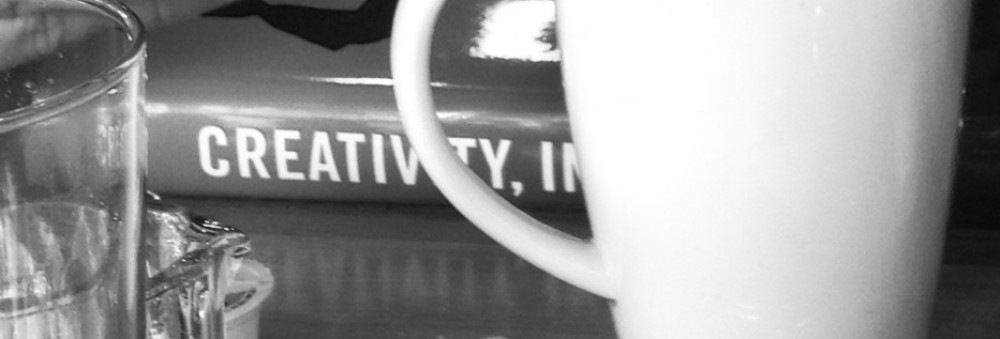Creativity has a tendency to lead us to more inventive thinking and ideas…
Access to more novel and new ideas heightens the opportunity for greater experimentation and innovation…
All of which, come from people.
If you want more ideas, more creativity, more innovation…
Then find more ways to support and engage this in your people and organization.
In many organizations, we are so intent on the problems and walls that stand before us, that we never allow ourselves the time necessary to think past, around or beyond them. We spend our waking time and mental capacity being now-focused. Completely immersed in plodding forward…and pushing those walls and obstacles with us. Never realizing that taking a step back will not only improve our perspective, but unveil a variety of routes forward that may have not been noticeable, previously.
It is in that backward step, we provide the room (and time) for perspective-taking, a space where we can allow for new ideas and new ways of thinking to take shape and evolve.
However, in much the same way that good is the enemy of great, very often, incremental progress stands as the nemesis too experimentation, creativity, and innovation. Which always leads us to, why fix what isn’t broken? A mindset we must eventually break. If creativity and innovation will be the vehicle that pushes our organizations into the future, then ideas will be fuel that feeds them both. And the more, the better.
Which is why that time and space will be so crucial…
Which reminds us, if we are ever going to move from ‘how we’ve always done things’ to the possibility of things we’ve never consideredwe are going to need an ongoing and constant flow of ideas.
From every level of the organization.
In order to engage more creative and innovative ideas and thinking across our organization, we are going to have to engage what Scott Barry Kaufman refers to in his book, Ungifted as mind-wandering.
And to do this, we are going to have to create more space (by taking that step back) for thinking to occur…
It is through his research in Ungifted that Kaufman found mind wandering “allows you to make constructive, adaptive choices regarding the future.”
Providing the conditions for mind wandering to occur has a tendency to facilitate “compassion, future planning, self-regulation, and divergent thinking.” Kaufman adds,“It is these spaces, when available, that allow for mind wandering, that enhances the overall creativity and innovative thinking of our individuals, and our organizations.”
So, if we know we want more creative and innovative individuals and organizations. If we acknowledge that ideas are the fuel to this creativity and innovation. Then we can begin to see why mind wandering is so important to supporting more creative and innovative organizations. Mind wandering creates increased levels of divergent thinking, which in turn, is the type of thinking necessary for creating more ideas. But, much like creativity, mind wandering doesn’t operate at its highest level when left wide open, rather, it requires constraints. And in much in the way it does with creativity, constraints help push and focus our mind wandering.
It is in his research, that Scott Barry Kaufman found that the performance of divergent thinking (creating ideas) showed greater improvement when there was an incubation period. Which means that we have a tendency to improve our divergent thinking around a problem, a question, or even a new way of doing when we’ve allowed not only time for mind wandering, but an incubation period alongside that mind wandering. Coupling mind wandering with a period of incubation leads to overall improvement in our divergent thinking, which deepens our well of ideas.
Which is why a flipped model of leadership can be incredibly beneficial. It gives leaders space for that mind wandering and incubation to occur, time for ideas and information to percolate and simmer.
Putting people on the spot, especially in meetings, without providing time for information to percolate, simmer and incubate, does nothing to improve the flow of new and novel ideas. Rather, without the necessary time for mind wandering, we will see a diminishing, rather than engaging effect of divergent thinking with our individuals, and our organization as a whole. Which in the end, determines the amount of new and novel ideas that we are able to amass.
At a time when ideas, creativity and innovation is at a premium, a flipped model of leadership can provide the necessary and needed space for ideas and divergent thinking to gain traction and momentum. Ultimately, supporting more creativity and innovation, in our individuals and our organizations.
“When you don’t allow time to mind wander or make space for reflection, you are limiting your chances for making insights. Aha moments don’t come from a directed and particular focus on a task, but by letting your mind wander and open up to other possibilities.” -Scott Barry Kaufman
References and quotes from…
Kaufman, Scott Barry. Ungifted: Intelligence Redefined The Truth About Talent, Practice, Creativity, and the Many Paths to Greatness. 2013. Basic Books, New York.

Outstanding post! I especially like the idea of cultivating a leadership style that carves out time for reflection. Leaders need to be doing great thinking.